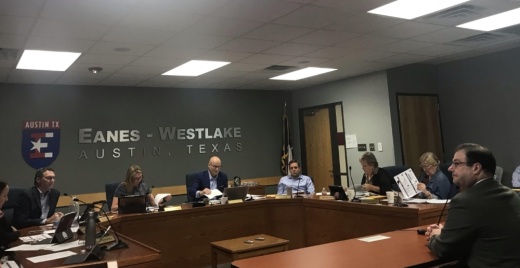Following a Feb. 12 announcement from the Travis Central Appraisal District that it will not appraise residential properties this year, Eanes ISD is seeking more information regarding the TCAD’s reappraisal plans for 2020.
The TCAD’s statement was in response to the Austin Board of Realtors sending the district a cease-and-desist order in May, which prohibited the TCAD from using ABoR’s market data in the appraisal process.
According to that order, which Community Impact Newspaper obtained from the TCAD, ABoR will not license its database “for establishing property values for tax purposes” or “grant licenses to any participant, subscriber, or third party to sublicense the [database] for establishing property values for tax purposes.”
Without this data, TCAD Chief Appraiser Marya Crigler stated she will use last year’s property values for 2020.
“What the assessor has stated right now is that they believe with the data that they're using, there has been no change in the residential market values for this year,” EISD Superintendent Tom Leonard said March 5. “We [EISD] believe that is not correct.”
Though TCAD received the order in May, Leonard stated the district only learned of this subject in February and added local municipalities and school districts will receive less revenue as a result of the TCAD’s decision, negatively impacting teachers, first responders, students and other community members.
According to a March 4 email from EISD general counsel Allyson Collins, the district submitted an open records request in accordance with Texas Government Code Chapter 552 for a number of reports, sales information and data from TCAD.
The information requested includes a copy of any analysis or report prepared by or for TCAD, all real property sales information used for real property appraisals within EISD for 2020, and any documents or action related to the TCAD reappraisal plan for 2019 and 2020.
In the records request, EISD is seeking any analysis or report that would indicate stagnant market values in 2020 for the Westlake area.
Other entities have successfully conducted appraisals without the use of MLS data, two of those being the state comptroller’s office and Bexar County, Leonard said.
“I would like to see [Crigler] using some of the strategies [the state comptroller’s office and Bexar County] are using, which are accepted standards for appraisers,” Leonard said. “If [Crigler] is confident that is the case and she has the data to support it, which she said publicly, then we’d like to see that data.”
Most local taxing entities—such as cities, counties and community college districts—set their tax rates based on the total taxable value provided by their appraisal district.
If appraisal values do not change, these entities can still set the tax rate at whatever increases revenue by 3.5% year over year, the maximum allowed under a new state law.
But school districts have a different formula for calculating local property tax rates.
As a result, TCAD predicts the order will negatively impact school districts in Travis County.
Even if appraisal values remain the same, market values will likely continue to rise, creating a gap in the appraised value of homes and the price they would fetch on the open market.
Last year, the total taxable value of properties in Travis County was appraised at $275.06 billion, according to data obtained from TCAD. This amounted to a 11.37% increase from 2018, factoring in both increasing value for existing property and new construction.
It was also the ninth consecutive year that the appraisal roll increased.
When allocating funding to school districts, the state comptroller’s office conducts a biennial property value study to determine the accuracy of the local appraisal district’s work in determining the total taxable value.
Emma Freer contributed to this report.





